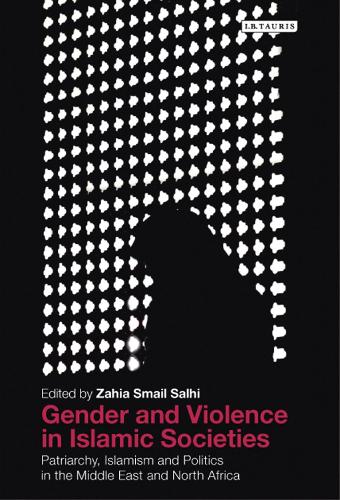
Gender and Violence in Islamic Societies: Patriarchy, Islamism and Politics in the Middle East and North Africa
(Hardback)
Publishing Details
Gender and Violence in Islamic Societies: Patriarchy, Islamism and Politics in the Middle East and North Africa
By (Author) Zahia Smail Salhi
Bloomsbury Publishing PLC
I.B. Tauris
30th April 2013
United Kingdom
Classifications
Tertiary Education
Non Fiction
Gender studies, gender groups
Violence and abuse in society
Social and cultural anthropology
305.6970956
Physical Properties
Hardback
304
Width 138mm, Height 216mm
501g
Description
As a result of the uprisings that spread across the Middle East and North Africa in late 2010 and 2011, the issue of state public violence against both men and women dominated the headlines. But gender-based violence, in both its public and private forms, has for the most part remained unnoticed and is often ignored. The forms that this kind of violence can take are influenced by cultural norms and religious beliefs, as well as economic and political circumstances. In 'Gender and Violence in Islamic Societies', violence is perceived not only as physical harm, but includes various forms of violence directed at women because they are women. These include segregation in the workplace and limiting women's access to wealth, gender stereotyping in the media and education, verbal aggression and humiliation, control of women's finances and income, forced veiling, restricted access to education and health. Gender-based violence is thus analysed in its various forms and localities, encompassing both the public and private spheres: within the family, the general community,at work and in various state institutions. Here, Zahia Smail Salhi brings together a wide range of examples of gender-based violence across the Middle East and North Africa, from discrimination in the workplace in Jordan to the physical abuse of underage domestic workers in Morocco, and from psychological and verbal violence against women in Tunisia and Algeria to the practice of female genital mutilation in Egypt. The evidence demonstrates that the violence, far from being of universal character across the region, is instead diverse, in both its intensity and in the processes of addressing such violence.
Reviews
This insightful, trans-disciplinary book highlights the violence against women which has emerged through continuing patriarchy and the rise of Islamism and Sharia-based family codes in the last few decades within the Middle East and North Africa. This wide-ranging volume highlights women's lived experiences of violence from within the family and its relationalities to the impacts of communities and that of the State. Compellingly written and rich with case study material drawing on both quantitative and qualitative studies, experts in the region look at an array of topics from female genital cutting to religious ethics, all of which serve to set violence against women in the region within the political frame of the necessity for human rights.' Dr Shirley Anne Tate, Associate Professor of Race and Culture and Deputy Director Centre for Ethnicity and Racism Studies School of Sociology and Social Policy, The University of Leeds
Author Bio
Zahia Smail Salhi is Professor of Modern Arabic Studies in the School of Arts, Languages and Cultures in the Faculty of Humanities at the University of Manchester.
